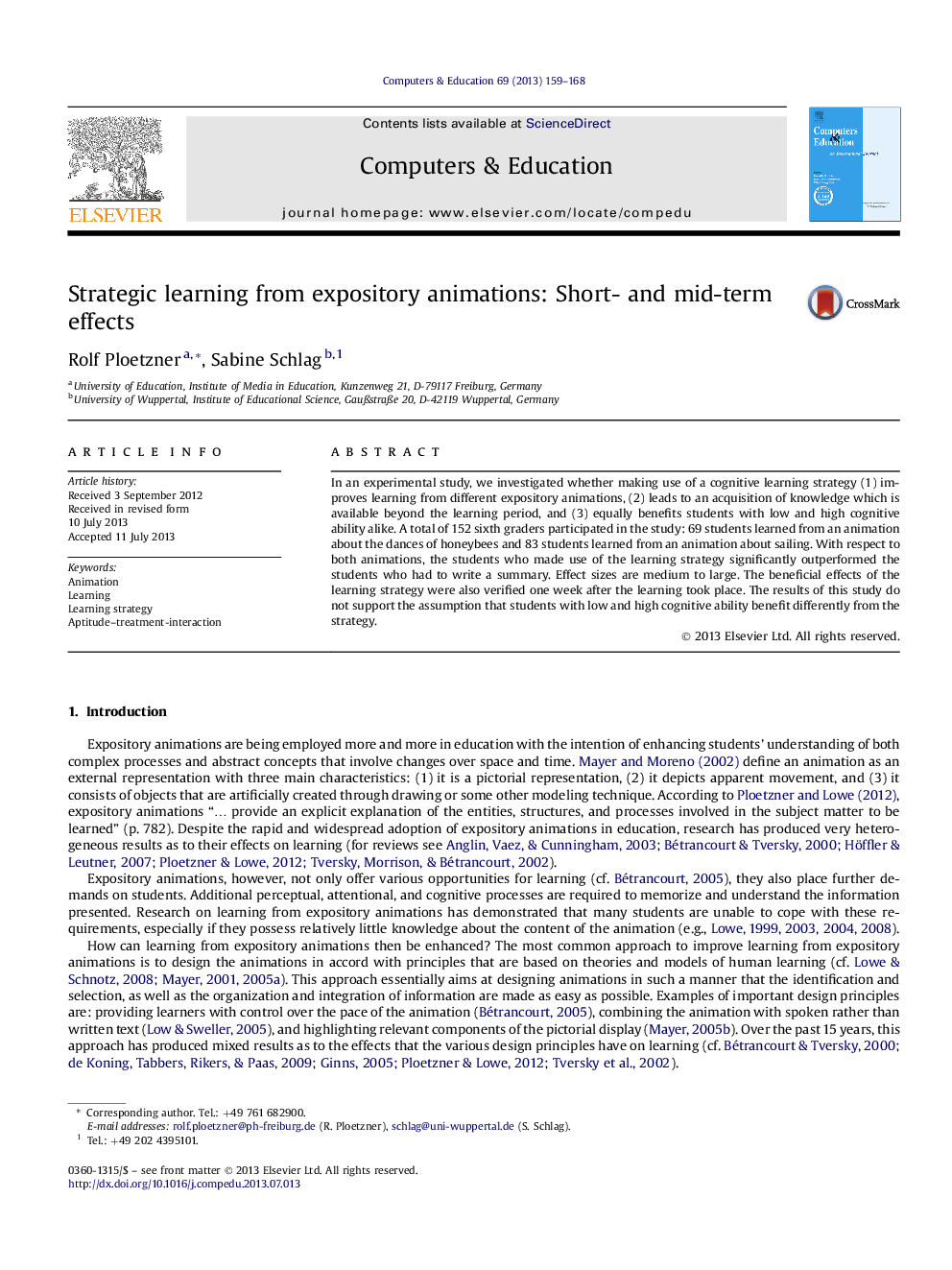| Article ID | Journal | Published Year | Pages | File Type |
|---|---|---|---|---|
| 6835453 | Computers & Education | 2013 | 10 Pages |
Abstract
In an experimental study, we investigated whether making use of a cognitive learning strategy (1) improves learning from different expository animations, (2) leads to an acquisition of knowledge which is available beyond the learning period, and (3) equally benefits students with low and high cognitive ability alike. A total of 152 sixth graders participated in the study: 69 students learned from an animation about the dances of honeybees and 83 students learned from an animation about sailing. With respect to both animations, the students who made use of the learning strategy significantly outperformed the students who had to write a summary. Effect sizes are medium to large. The beneficial effects of the learning strategy were also verified one week after the learning took place. The results of this study do not support the assumption that students with low and high cognitive ability benefit differently from the strategy.
Keywords
Related Topics
Social Sciences and Humanities
Social Sciences
Education
Authors
Rolf Ploetzner, Sabine Schlag,
